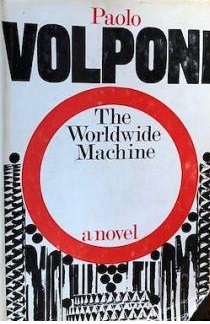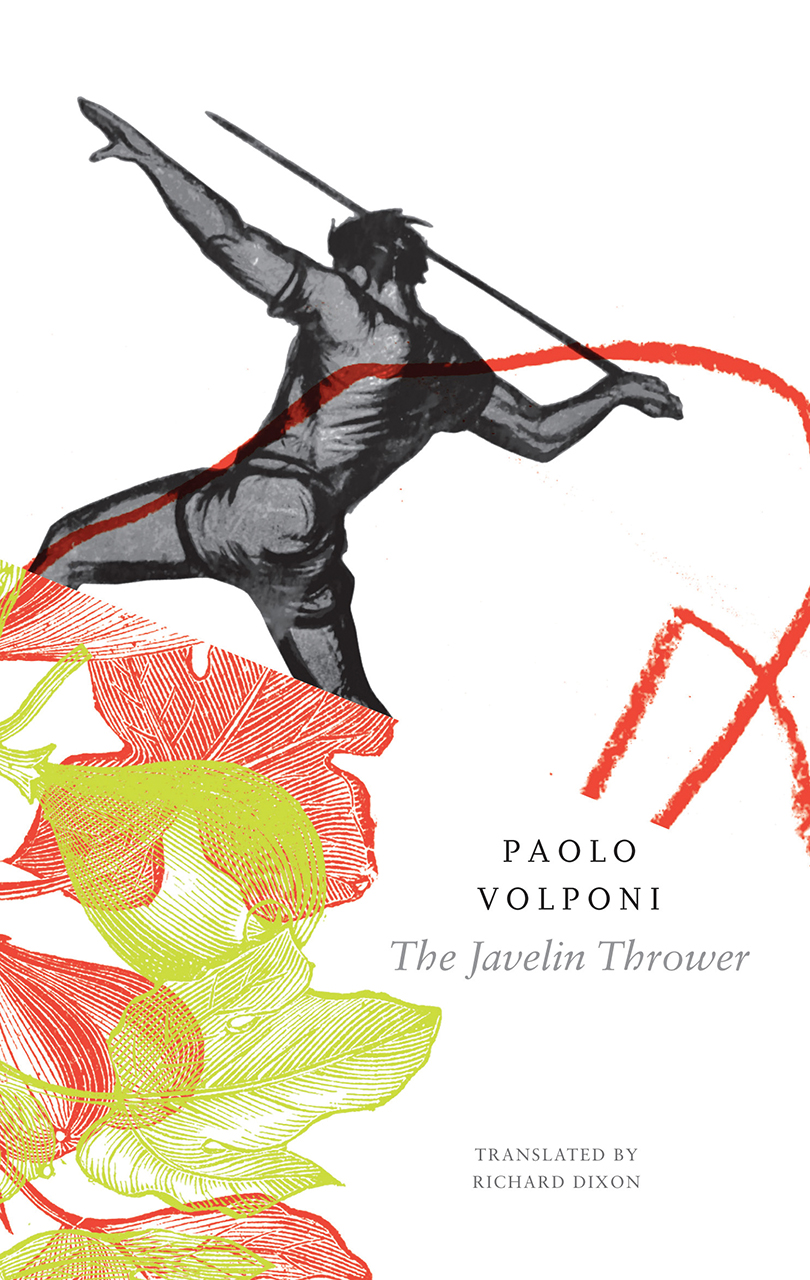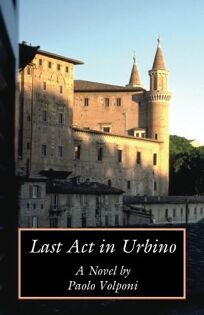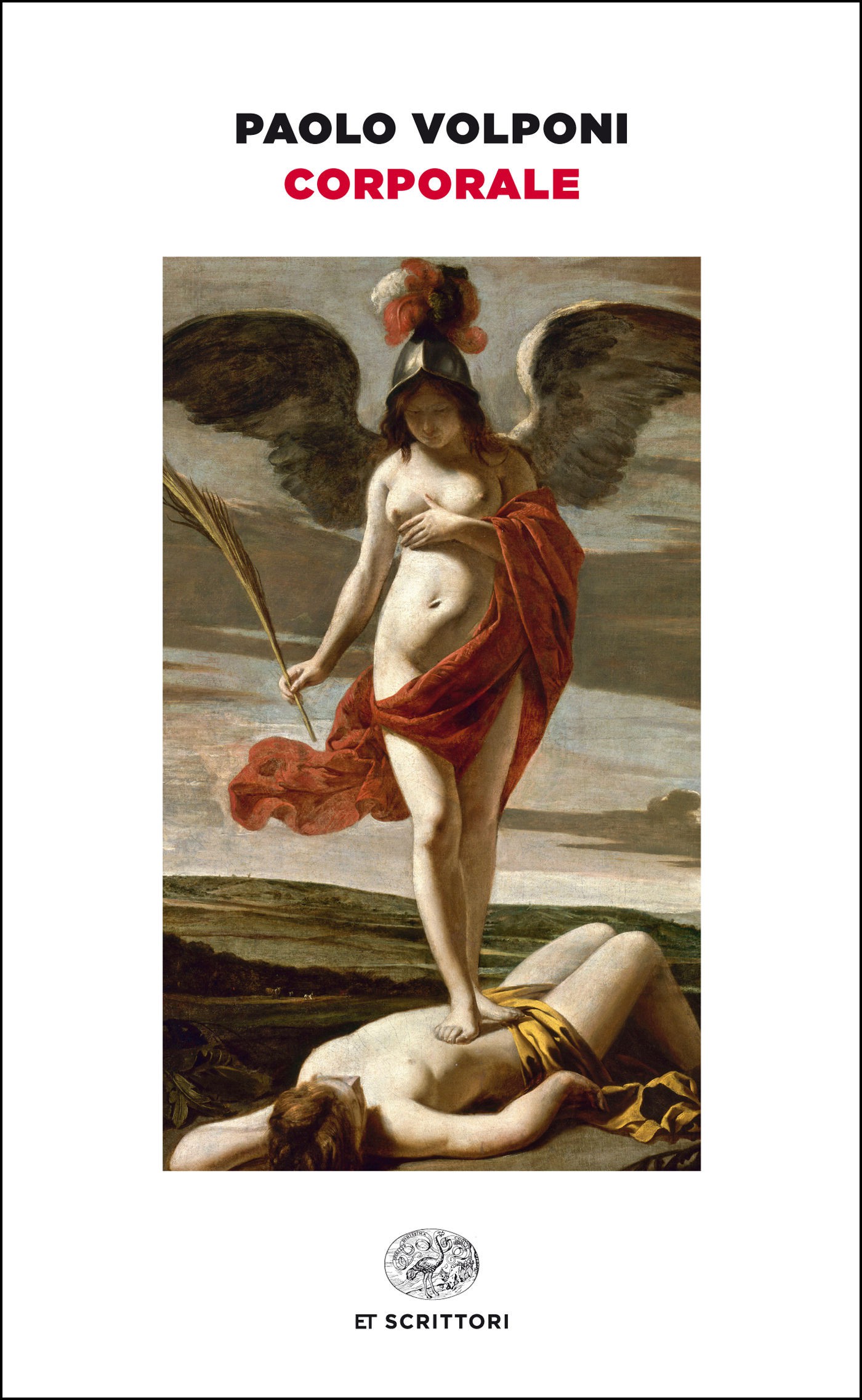
Paolo Volponi, The Worldwide Machine: a novel, Grossman Publishers, 1967.
The essay-novel, or the novel of introspection or symbolic action, has only recently caught on in Italy. Moravia is sexually oriented, the interests of Silone and Vittorini are basically social, and all three employ a more or less realistic immediacy. Paolo Volponi's The World Wide Machine, on the other hand, is closer to Musil and Kafka, to dehydrated prose, indirect representation, and allegorical issues. The first person narrator here exists in the closed world of his own mind, coolly spinning an abstract meditation on the evolutionary drive of the future and the bourgeois olly of the present. For Anteo Crocioni, ""reality has only two terms: man and science."" He is the obsessed utopian, the philosophical scientist without an accomodating bone in his body, the historical martyr whose fancy it is ""that men have been built in the likeness of a machine by other beings who...are also machines, and that man's true destiny is to build other machines which will be better than man."" So he continues his improbable designs, his only friend a gentle priest with whom he debates the nature of life, while his wife is driven to infanticide, and he himself dies a suicide, though still secure in his faith. An elliptical, highly suggestive work, no doubt a parody of the scientific method, and a cautionary reflection on progress. - Kirkus Reviews

Paolo Volponi, The Javelin Thrower, Translated by Richard Dixon, The University of Chicago Press, 2018.
As a boy growing up in rural Italy in the 1930s, Damìn is experiencing the first stirrings of adolescence when he accidentally sees his mother having sex with the local Fascist commandant. His pain, anger, and confusion are uncomfortably intertwined with a compulsion to watch them, which becomes an obsession.
Isolating himself from anyone who might help him understand what he’s feeling, he channels his fury into his javelin, getting better and better until he is a local champion. But his success is fleeting, as wholly confused and caught up in his own anger, he ends up betraying and humiliating his friends. The Javelin Thrower is the story of an erotic education turned tragic, poisoned by the darkness running through Mussolini’s Italy.
“A portrait of a troubled adolescent boy, Damìn, which is the most memorable of all such portraits since J. D. Salinger’s The Catcher in the Rye.”

Paolo Volponi, Last Act in Urbino, Trans. by Peter N. Pedroni, Italica Press, 2016.
When terrorist bombs explode in a bank in Milan on December 12, 1969 they raise the curtain on a cast of unlikely players. Prof. Gaspare Subissoni and his lifelong companion and inspiration, Vivés, are both anarchist veterans of the Spanish Civil War trying to retain their dignity, and their commitments in the face of a new age. The young Count Oddo Oddi-Semproni and his two unmarried aunts, Clelia and Marzia, who have protected him — and themselves — hide from the modern world in their crumbling Renaissance palace. Their chauffeur Giocondini serves them — and himself — with limousine tours to "Italy" and with overwrought dreams of a revived Duchy. But then the young prostitute Dirce — whom Oddo would have as his countess — sets all their worlds upside-down when she, Gaspare and Vivés join forces for one final act. This satire of Italian social and political contrasts uses a wry wit and keen sense of detail to ask what, ultimately, is more real: the images of distant conflicts, allegiances and celebrities that flicker on and off the TV screen? Or the loves, memories, and loyalties of a single lifetime?
Set in the late 1960s and steeped in Italian scenery, food and drink, this period drama is as stiff and stagy as any passion play. Volponi (1924-1994), who garnered international acclaim for his 1949 novel My Troubles Began, was one of Italy's literary luminaries, a two-time recipient of the Premio Strega book award. This is the first English translation of a 1975 work in which the author's hometown serves as the setting for national events. The characters are caricatures: The tyrannical remnant of local Renaissance royalty, Count Oddo Oddi-Semproni, and his sweet-natured whore, Dirce, are countered by the bandy-legged anarchist Professor Gaspare Subissoni and ``his woman,'' Vives, a tragically stoic Spanish revolutionary and the book's most resonant soul. All are set in motion by the television--a dour main character--when it broadcasts news of terrorist bombings in Milan. It's a Calvino-esque picture of modernity enthralled by technology, one that argues for decentralized government and personal freedom with an impressive eye for detail. Whether the pervasively obtuse syntax and strange language (a passage on Oddo's beard reads, ``The young man's down sparkled with satisfaction, dense like the subject of a Bronzino portrait'') are the faults of the translation or the original, there is something at odds between Volponi's powerfully incisive sensibility and the simple, at times silly, drama. - Publishers Weekly
From the late prize-winning Italian author Volponi (The Worldwide Machine, 1967, etc.), the first English translation of a novel written in 1974: a rich blend of political commentary and sexual farce set in 1969 Urbino. Chapters alternate between the story of aging anarchist lovers, Gaspare Subissoni and VivÇs Guardajal, and the young, naive, self-centered Count Oddo Oddi-Semproni, the darling of his two maiden aunts and the envy of his conniving chauffeur, Giocondini. After the terrorist bombing of a bank in Milan, the ailing VivÇs wants to go to Milan to seek out the truth behind the bombing and the subsequent arrest of an anarchist, but she dies before she can go. Meanwhile, the isolated Oddi-Sempronis are watching the bombing reports play out on TV and planning their various day trips with the help of Giocondini. The ambitious chauffeur wants Urbino to become an independent duchy with Count Oddo installed as the nominal overlord, while he, Giocondini, will wield the real power. A hilarious sequence ensues when the aunts dispatch Giocondini on a mission to make Oddo a man: At the first brothel, the priapic and well-endowed Oddo wows the adoring prostitutes and, in revenge, the offended Giocondini takes him to a decrepit brothel where Oddo encounters the love of his life, the maid Dirce, whom he brings back to the palace. But Dirce is unhappy and runs away, eventually taking refuge with the now-widowed Subissoni. As the search for the runaway bride commences, Giocondini believes his crafty plans will mesh with Subissoni's own wishes for an independent Urbino; instead the plot takes a surprising turn and ends on a tragic note. The politically complex- -and philosophy-laden--Subissoni narrative takes on a new power after VivÇs's death: The chapter detailing her cremation and Subissoni's utter loneliness is chilling and moving. Meanwhile, the dim-witted count and his family, described with amused irony, provide a droll counterpoint to the intensity of the anarchists' plotline. Demanding but ultimately rewarding fiction. - Kirkus Reviews
...a novel that skillfully interweaves past and present, upper and lower social classes, and devotion of both personal and ideological natures into a tapestry set in the picturesque and vibrant northern Italian city of Urbino.... an excellent novel that provides insight into the paradoxes of modern society. - Bowling Green Daily News
The novel is rich in poetic nuances and surrealistic flashes that transform political ideology into a personal struggle for identity. The translation captures Volponi’s impeccable style, a literary finesse that makes his writing outstanding and, in many ways, unique. All collections. - Choice
Last Act in Urbino was written two decades ago. As the current governmental crisis has illustrated, Volponi’s novel is prophetic. - L’Italo-Americano
The translation...maintains the musicality and feeling of Volponi’s writing while remaining as expressive in English as the original is in Italian. Last Act is concurrently touching and bitingly sarcastic and entices the reader into the lives of the novel’s characters by presenting them each in varying degrees of sympathy and acrimony. - VIA

Paolo Volponi, My Troubles Began, Grossman Publishers, 1964.

Paolo Volponi, Corporale
I bought Paolo Volponi’s novel in Rome as a souvenir during my brief stay in that incredibly beautiful city this July. I gave it preference over the selfie sticks, cheap Colosseum replicas, and t-shirts with provocative slogans. Corporal has a reputation of a difficult book, and when it is mentioned in different overviews of modern Italian literature the word “experimental” is invariably attached to it. Alberto Moravia held this work in high regard, writing that “Corporal is an almost impressionistic recovery of magma in which a man incapable of relations with the world moves, and here emerges the extraordinary quality of Volponi as a writer”. These words have become the staple blurb for the novel which is rarely read, has not been widely translated (there is only French translation to the best of my knowledge), and has a nasty habit of regularly going out of print. Now that I’ve read it, I can confidently say that we’re dealing with a literary treasure that is due to various reasons is not treasured at all these days. Corporal is a stylistic gem, a profound exploration of an anxiety-ridden consciousness in the atomic age as well as a skilfully designed and orchestrated narrative that rewards a patient and attentive reader.
The general mood is set from the outset by the epigraph, which is taken from Elsa Morante’s essay Pro o contro la bomba atomica (For or Against the Atomic Bomb):
Our bomb is the flower, or rather the natural expression of our contemporary society, just like Plato’s dialogues are of the Greek city; the Colosseum – of the Imperial Romans; Raphael’s Madonnas – of Italian Humanism; gondolas – of Venetian nobility; tarantella – of some southern rural populaces; and the extermination camps – of petit-bourgeois bureaucratic culture already infected with a rage of atomic suicide.That is a very powerful passage, but, if the reader expects Volponi’s novel to be just one of the numerous post-Cuban-Missile-Crisis nuclear-holocaust ephemera, they couldn’t be wider off the mark. Although the topic of nuclear destruction is prominent in this book, it is just one of the several motifs which are explored in painstaking detail via the disturbed and distorted consciousness of the main character Gerolamo Aspri.
Aspri’s stream of consciousness to which we are exposed from the very first page is bound to disorient and exasperate even the most seasoned readers of experimental fiction. My personal impression when reading the book was akin to watching a David Lynch movie: extremely preposterous actions were carried out and utterly absurd and illogical statements were made with such an air as if all the violations of common sense were the most mundane occurrences not worth any second thought. The main character of Corporal most probably suffers from a mental disorder. His narration is erratic, jumpy and volatile. He tends to fuse reality and hallucinations to such a degree that it is almost impossible to tell which is which. He splits the language the way scientists split the atom to create the nuclear weapons he is so paranoid about. On many occasions his rants and diatribes transform into something reminiscent of automatic writing or William Burroughs’ cut-ups: incompatible concepts are put together, familiar phrases are divested of their usual meanings, syntactic relations are disrupted, all this to create an alienating effect. That being said, it is not that difficult to follow the general plot of the novel, and although some of the reasons for the characters’ actions remain vague, we are never completely in the dark as to what happens.
The first part of the novel is narrated in the first person by Gerolamo Aspri. When we first meet him, he is on vacation in Rimini with his wife and two kids. As we learn later, he is currently employed as a school teacher with an Italian Communist Party membership and a managerial post at a factory left forever behind. He takes long walks along the beach, inspecting the place where a murder has been recently committed. He is morbidly obsessed with the unknown perpetrator. This fascination is as strong as his another obsession: an erotic longing for a teenage girl called Ivana whom he meets on the same beach. Eros and Thanatos are Aspri’s faithful companions wherever he goes, and their most sublime embodiment seems to be the hydrogen bomb whose explosion he expects with a mixture of horror and excitement.
Aspri’s infatuation with Ivana is never destined to consummate because of a devastating tornado that strikes the beach. She and her boyfriend are riding in a paddle boat when this happens. The drowned boy’s body is recovered later, whereas Ivana is never found. Distraught and heartbroken, Aspri moves on. He will be meeting more people, and doing things one hardly expects from a school teacher. An overheard conversation about a lawyer and art seller from Urbino who is rumoured to have killed his son refuels Aspri’s obsession with the mysterious murderer: he superimposes his image with that of the man mentioned by the speakers. Equipped with the knowledge that the possible perpetrator’s last name ends with “ati”, Gerolamo travels to Urbino where he soon enough finds a certain attorney called Trasmanati. The attorney’s collection of paintings is likely to interest Aspri’s German friend with whom he maintains a long-lasting correspondence. Without hesitation, he telegraphs Overath to come to Urbino. This Overath is a very strange and elusive person. I’m tempted to view him as some kind of Mephistophelian presence in Aspri’s life. Art collection is just one of many activities pursued by Overath, and only few of those seem to be legal. Their visit to Trasmanati’s house ends up in a scuffle as Aspri suddenly attacks Overath, intending to bludgeon him to death with the host’s cane. The teacher goes haywire when the German, overwhelmed by the dark beauty of Trasmanati’s Renaissance paintings, utters a pompous disquisition on the immortality of the soul. Nobody is seriously injured and the friends part their ways, but only for a while, as they are to be reunited again under very specific circumstances.
The second part is narrated in the third person, which does not prevent it from being as confusing as the first one. We come to know the Mr. Hyde side of Aspri’s personality as we encounter him in Milan actively involved in drug trafficking and prostitution under the alias Joaquin Murieta, which is the name of the notorious 19th century Mexican outlaw. Aspri’s alter ego keeps a diary and some of its entries appear in the narrative. Murieta keeps a colourful company consisting of smugglers, pimps, drug dealers, whores and hustlers of any stripe. There is also an Ivana, but this time she’s anything but the nymphet from Rimini: she is a prostitute married to her own john who is simply referred to as Ivana’s husband. There is a competition between Murieta and the omnipresent Overath for Ivana’s attention, and her husband doesn’t seem to mind. When we come to think of it, why should he, with as many as forty street walkers under his control? Besides the forty prostitutes, we are also introduced to the same number of greyhounds whose names are abstract nouns like Equality, Liberty, Fraternity, Mendacity, Death, Wickedness: Murieta and his associates decide to expand their business by opening a dog race track. The accounts of these nefarious characters’ wheeling and dealing often include lengthy political and philosophical discussions which are tinged with the sense of the grotesque, not the least due to the way the main character perceives and interprets reality.
For some time, the shadowy existence as Joaquin Murieta is everything Aspri the teacher, constrained by societal norms, could wish for. However, the protagonist’s stint in the criminal underworld, despite all the adventures, dangers and passions, can neither stop his growing alienation from the surrounding world nor curb his terror of nuclear war. Eventually, he casts the adopted gangster persona aside to become a mere teacher again. The catalyst for Aspri’s decision to leave Milan is his son’s tragic death in a boating accident.
The third part, again narrated in the first person, is set in the magnificent city of Urbino. Aspri has moved there to work at a local school. His main mission, however, is scouting the nearby foothills of the Apennines in search of the most appropriate place for an atomic shelter. Aspri also enters in a relationship with Trasmanati’s housekeeper Imelde who, after the lawyer commits suicide, is left in charge of his home and the numerous art pieces pending the auction. But when Gerolamo finally rents an estate that satisfies his goals both geographically and meteorologically (he is very meticulous about the direction of the winds that are likely to carry radioactive fallout), he does not even conceive the possibility of sharing his ark with anyone else. In fact, fully aware of the Biblical undertones of his project, Aspri calls the shelter Arcatana (literally arklair or arkburrow). Exhibiting enviable capacity for work, he manages to construct the facility single-handedly in less than two years. Aspri is portrayed as a kind of Anti-Noah whose primary goal is not to preserve the seed of humanity for the future regeneration, but rather to create conditions for his complete detachment from mankind and its history, reaching the state of ultimate solipsism that he is going to maintain until and beyond the atomic annihilation of life on the planet. Rather than pondering on conservation of the human race, Aspri fantasises about a new species that will evolve out of his mutating organism:
[…] man-animal-emerald prepared to get resurrected (this word is so ugly, religious, and so papally filled with lead that it won’t bring back to the surface even a cork, not even a turd) to re-emerge different, encrusted, made thinner, split in half, discoloured, one-eyed, rendered bat-like by darkness, lizard-like by earth, eel-like by mud, monoped, coelenterate, with or without fur, mute, feathered, carnivorous, omnivorous, virus, bacterium, blue alga, moss, sponge, fungus, mould, jellyfish, disflagellated (here we go again, religious thoughts), flagellated (but has nothing to do with some column of Hellenistic imitation, and Palestinian portico, centurion’s red tunic), multi-cellular, capable or incapable of photosynthesis, provided that it is alive, alive, alive, and therefore able in its own way to think, to grow, to reproduce, and different, different, different from the present fearful creature, naked and covered in sticking plaster (not me, dear Imelde of the blue little nose, not me) sedentary and stercoraceous, with the brain, the nose, the prick chasing after services to give and to receive.While Aspri is building the fallout shelter, he begins studying his new scripture, a sacred text that will prepare him for the world to come: an issue of a medical journal dedicated to the survival during and after nuclear war.
The fourth and final part is very short. Just like the second, it is narrated in the third person. The main setting is the hospital where Aspri is admitted after sustaining a pelvis injury at the farm. Confined to his ward, he nevertheless tries to manage various issues related to the up-keeping of the rented property by employing a waiter from the billiards bar he used to frequent. The waiter is happy to run errands for him, but gradually it becomes apparent that he is hiding something from his employer, as well as that Overath, unbeknownst to Aspri, might be interfering with his grand project of resurrection from the nuclear ashes. But there is no way to be sure if any of Gerolamo’s suspicions are true, as his dreams, hallucinations and reveries keep re-inventing the drab reality he is incapable of escaping. Straddling a rocking horse on his bed, brought to him so he could look through the window, he cuts a solitary and grotesque figure. The waiter reports to him that some unknown vandals have started raiding the estate, and the dismantling of the fallout shelter is just a matter of time. Where will Aspri go when he is dismissed from hospital? What will he do? How much of what has been seen or told by him is true? I am afraid that the burden of answering these questions has been laid on the readers, provided that they have managed to reach the novel’s end.
Corporal was written between 1966 and 1974, the period which corresponds to the heyday of Italian auteur cinema. Fellini’s 8 1/2, Pasolini’s Il teorema, and Antonioni’s L’avventura were made during that time. There is a certain affinity between Volponi’s novel and those groundbreaking films. Corporal manages to encompass the existential void of Antonioni, the eroticism of Pasolini, and the carnivalesque dreamscapes of Fellini. It is in many ways a product of its time with its hysteria around the atomic bomb and the preoccupation with leftist politics. But, just like those great cinematic works, Volponi’s novel succeeds in transcending its topicality, which is now a mere curiosity, a bizarre insect in the amber of the Cold War era. After all, the main concern of this astonishing monument to the Italian language is neither nuclear war nor the split personality, although these topics are most likely to attract the attention of the reader. In this unusual, uncomfortable, often frustrating novel Paolo Volponi, like nobody else, makes us aware of the two grand complexities that we cannot avoid, no matter how we try, no matter what kind of shelter we try to build around us: those of the world we are born into and of the language we use to make sense of it. That sounds hopelessly trite, I know. But it takes a genius to express this idea in such a grandiose, multi-layered verbal symphony that is Corporal – yet another great unknown patiently waiting for us to catch up with it. - theuntranslated.wordpress.com/2015/10/06/corporal-corporale-by-paolo-volponi/
Obituary: Paolo Volponi

No comments:
Post a Comment
Note: Only a member of this blog may post a comment.